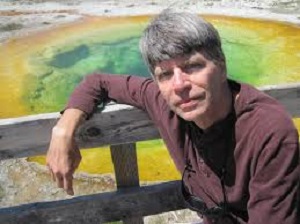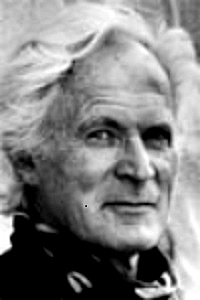De Amerikaanse schrijver Richard Powers werd geboren op 18 juni 1957 in Evanston, Illinois. Zie ook alle tags voor Richard Powers op dit blog.
Uit: The Time of Our Singing
“This is how I see him, although he’ll live another third of a century. This is the moment when the world first finds him out, the night I hear where his voice is headed. I’m up onstage, too, at the battered Steinway with its caramel action. I accompany him, trying to keep up, trying not to listen to that siren voice that says, Stop your fingers, crash your boat on the reef of keys, and die in peace.
Though I make no fatal fumbles, that night is not my proudest as a musician. After the concert, I’ll ask my brother again to let me go, to find an accompanist who can do him justice. And again he’ll refuse. “I already have one, Joey.”
I’m there, up onstage with him. But at the same time, I’m down in the hall, in the place I always sit at concerts: eight rows back, just inside the left aisle. I sit where I can see my own: fingers moving, where I can study my brother’s face–close enough to see everything, but far enough to survive seeing.
Stage fright ought to paralyze us. Backstage is a single bleeding ulcer. Performers who’ve spent their whole youth training for this moment now prepare to spend their old age explaining why it didn’t go as planned. The hall fills with venom and envy, families who’ve traveled hundreds of miles to see their lives’ pride reduced to runner-up. My brother alone is fearless. He has already paid. This public contest has nothing to do with music. Music means those years of harmonizing together, still in the shell of our family, before that shell broke open and burned. Jonah glides through the backstage fright, the dressing rooms full of well-bred nausea, on a cloud, as though through a dress rehearsal for a performance already canceled. Onstage, against this sea of panic, his calm electrifies. The drape of his hand on the piano’s black enamel ravishes his listeners, the essence of his sound before he even makes one.
I see him on this night of his first open triumph, from four decades on. He still has that softness around his eyes that later life will crack and line. His jaw quakes a little on Dowland’s quarter notes, but the notes do not. He drops his head toward his right shoulder as he lifts to the high C, shrinking from his entranced listeners. The face shudders, a look only I can see, from my perch behind the piano. The broken-ridged bridge of his nose, his bruised brown lips, the two bumps of bone riding his eyes: almost my own face, but keener, a year older, a shade lighter. That breakaway shade: the public record of our family’s private crime.”


